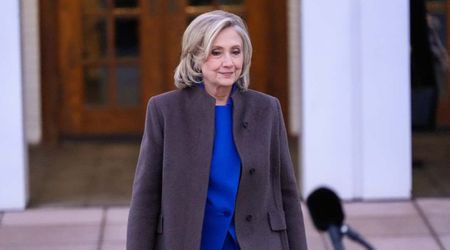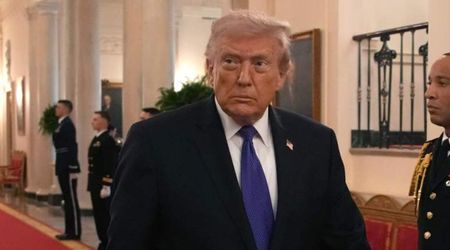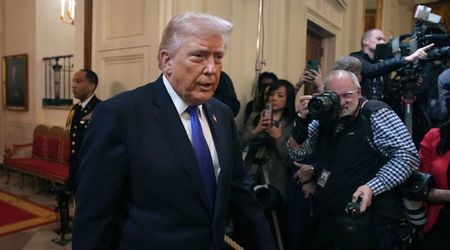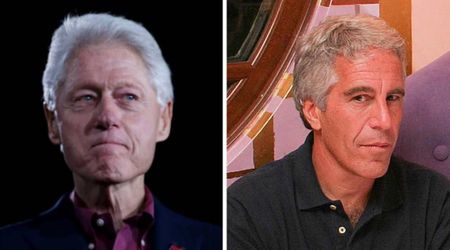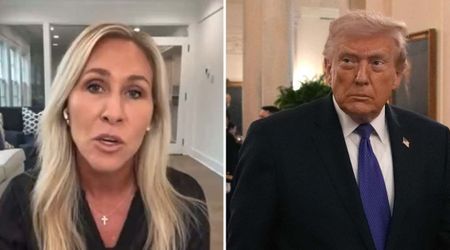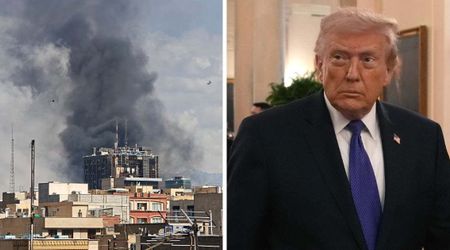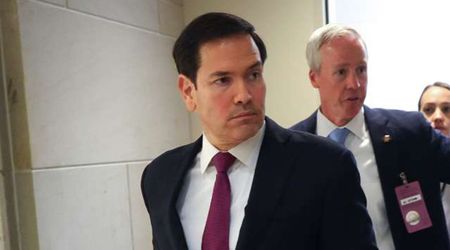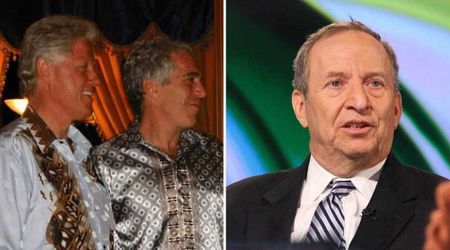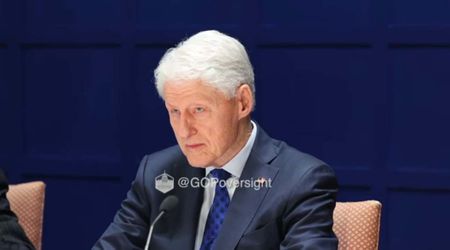Trump trial: Key takeaways from Michael Cohen's testimony including recording played for jurors
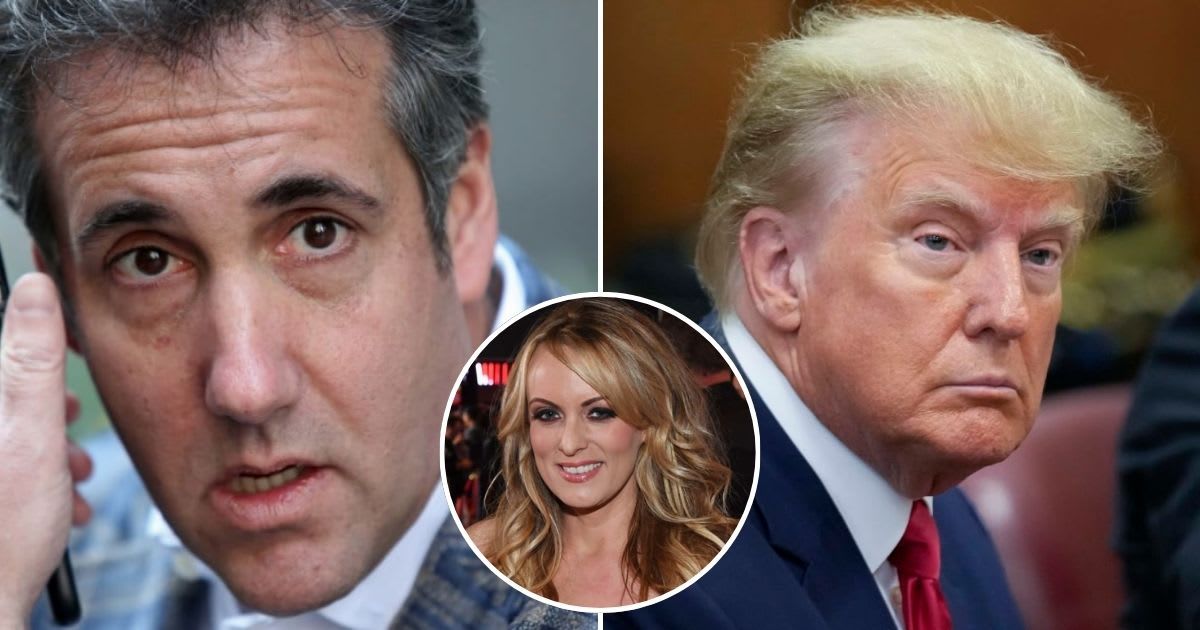
Major takeaways from Michael Cohen's first day of testimony in Trump's hush money trial

In the ongoing criminal trial of former President Donald Trump in New York, Michael Cohen, a former attorney and fixer for Trump, testified on Monday, May 13. Cohen had worked for the ex-president for more than a decade and once famously stated that he would take a bullet for him. Cohen testified how he was hired by Trump, how working for him was “fantastic,” and the former POTUS's involvement in the deals Cohen executed on his behalf. Although Cohen was a vocal supporter of the MAGA strongman in the past, he has since become a staunch detractor. In 2018, Cohen pleaded guilty to campaign finance violations, tax evasion, and later for lying to Congress. Consequently, Cohen received a prison sentence and was later released after undergoing house arrest in late 2021. Trump's legal team is expected to challenge Cohen's credibility by highlighting his criminal history while he’s on the stand. Cohen is a central figure in the hush money criminal trial against the 77-year-old, solely stemming from the fact that he paid adult film star, Stormy Daniels, $130,000 to silence her from going public about her alleged affair with then-presidential candidate Trump, during the final stages of the 2016 general election campaign. Cohen was later reimbursed for the payment by Trump and his trust. Prosecutors claim that Trump falsely classified the reimbursements as legal expenses to conceal their true nature, which was to improve his chances of winning the presidential election by preventing Daniels from revealing that she had sex with Trump in 2006. Trump denies having sex with Daniels and any legal wrongdoing, arguing that the payments made to Cohen were indeed legal expenses. Despite this, the embattled former president is facing 34 felony counts of falsifying business records. Here are five takeaways from Cohen’s first day of testimony.
1. Cohen testified Trump approved deals made on his behalf

Prior to the hush money payment to Stormy Daniels, Michael Cohen testified that he settled other deals with people who supposedly had damaging stories about then-presidential hopeful Trump. One such deal involved a $30,000 payment to a former Trump Tower doorman who claimed Trump had an illegitimate child with a former employee, while another deal entailed a $150,000 payment to a Playboy model who alleged having an affair with Trump. According to Cohen, in each case, Trump was reportedly informed and made aware of everything following which he instructed his then-personal attorney Cohen to take necessary actions to suppress the negative stories. Regarding the Daniels payment, which ultimately led to criminal charges, Cohen asserted that Trump's involvement was no different. Cohen claimed that when he told Trump about Daniels attempting to share her affair story, Trump simply responded with "Just take care of it," indicating that he wanted Cohen to suppress her story by preventing its publication at all. Cohen further stated that he kept Trump updated on the payments as he sought recognition for his efforts. Moreover, Cohen fronted the money for the Daniels payment and expected reimbursement from Trump. “Everything required Mr Trump’s sign-off,” the former Trump attorney said. “On top of that, I wanted the money back.” Cohen later testified that Trump was present with him and Trump Organization CFO Allan Weisselberg in 2017 when they discussed the structure and timing of the reimbursements to Cohen. For prosecutors to secure a conviction, they must demonstrate Trump's direct involvement in the repayment scheme. Previous witnesses have attested to working with Cohen to arrange the deal with Daniels but are unable to provide details about Trump's definite role. Cohen appears to be the sole witness capable of demonstrating that Trump ordered the payments.
2. Cohen highlights the threat Stormy Daniels presented to Trump's budding 2016 campaign

One crucial question in the hush money case is whether Donald Trump aimed to silence Stormy Daniels to prevent her from revealing information that could harm his chances in the 2016 election or merely to avoid personal embarrassment. This is significant because the offense he is accused of is typically only a minor one unless it can be proven to have been committed for facilitating another crime. Prosecutors argue that the allegedly falsified business records, constituted interference in the election, as the purpose of the payment to Daniels was to hide information from voters that they would have otherwise known. Trump’s team denied this. Cohen's testimony aimed to emphasize how worried Trump was that Daniels's story could ruin his chances of winning the White House. He stated that after learning that Daniels might publicly disclose her claim of a sexual encounter, Trump told Cohen, "This is a disaster, total disaster," and added that although male voters might find his reported actions "cool," "this is going to be a disaster for the campaign." Cohen also claimed that Trump appeared relatively unconcerned about the effect it could potentially have on his wife, Melania. Allegedly, Trump said that he would not be "on the market" for long if things went wrong with his wife.
3. Recorded conversation between Cohen and Trump played to jurors

Michael Cohen’s testimony resolved a question that had been lingering on everybody’s mind throughout the trial. Jurors had already been presented with the secret recording of former President Trump that Cohen had made in 2016 — and they were once again on Monday. The recording captures Cohen and Trump discussing a $150,000 deal with another woman, former Playboy model Karen McDougal, who claimed to have had a sexual relationship with the real estate magnate. Up until Monday, it was unclear why Cohen had recorded that particular conversation with his former employer. But Cohen informed the court that he had made the recording in order to persuade David Pecker, the National Enquirer magazine executive who was directly involved in the deal with McDougal, that he would be reimbursed. Pecker “would hear the conversation, and he would know that we’re going to be paying him back, that Mr Trump was going to be paying him back,” Cohen testified. Ultimately, Pecker did not request reimbursement.
4. Cohen claims he played a minor but significant role in the campaign

Michael Cohen claimed that he regularly collaborated and coordinated with Trump's 2016 presidential campaign. Conversely, Trump's legal team has sought to depict Cohen as an independent operator who arranged deals with minimal input from the future president. Cohen had an email address associated with the campaign and appeared in the media on behalf of the candidate. Following the release of the infamous 'Access Hollywood' tape, Cohen made a positive statement about Trump and his interactions with women during an appearance on Wolf Blitzer's CNN show. Email records presented to the jury revealed that he was in frequent communication with a senior campaign aide as the campaign grappled with the fallout from the tape and the potential exposure of allegations from Daniels and Playboy model Karen McDougal. “I advocated for Trump in the best way possible,” Cohen said. “I received regular talking points from the campaign.” The prosecution's attempt to establish that Cohen's payment to Daniels for hush money was a campaign expense rather than a legal fee will hinge on this relationship between Cohen and the Trump campaign.
5. Michael Cohen kept his cool all through Monday’s trial proceedings

The witnesses who provided testimony before Michael Cohen portrayed him as a confrontational and untruthful individual that nobody wished to engage with. However, during his testimony on Monday, Cohen exhibited composure and professionalism, methodically responding to each question with precise details. While acknowledging his falsehoods, Cohen attributed his actions to a desire to shield his former employer. Nonetheless, his demeanor may undergo a shift in the coming days. As cross-examination commences, defense counsel is anticipated to challenge Cohen’s credibility, highlighting his history of deceit and extensive public criticisms of Trump, while simultaneously seeking to distance him from his former employer. Ultimately, the task of discerning which iteration of Cohen to trust lies with the jurors.

